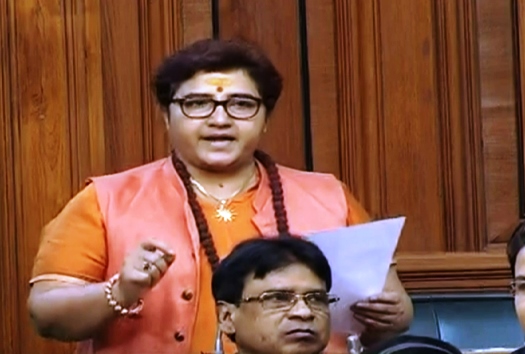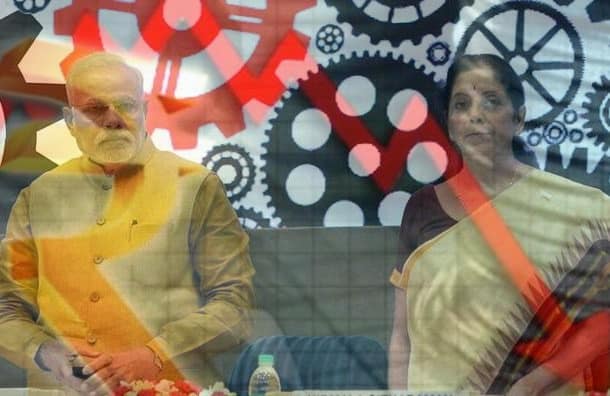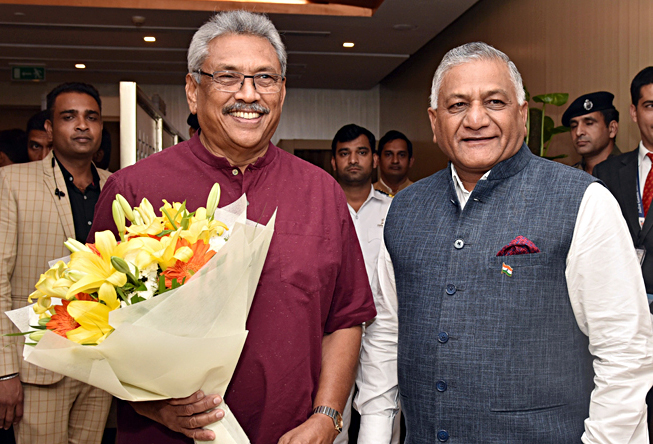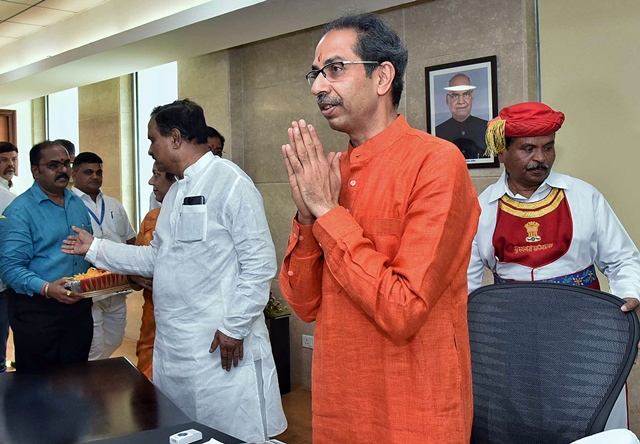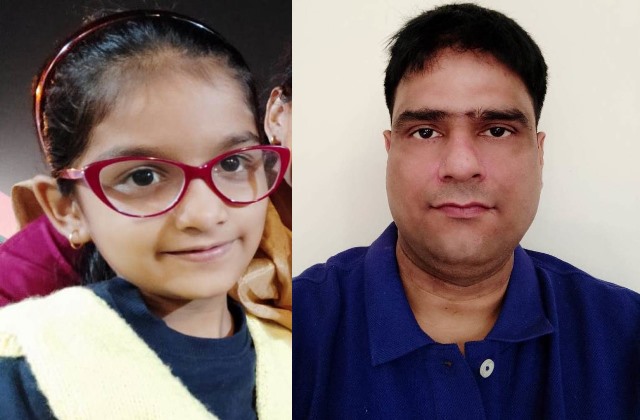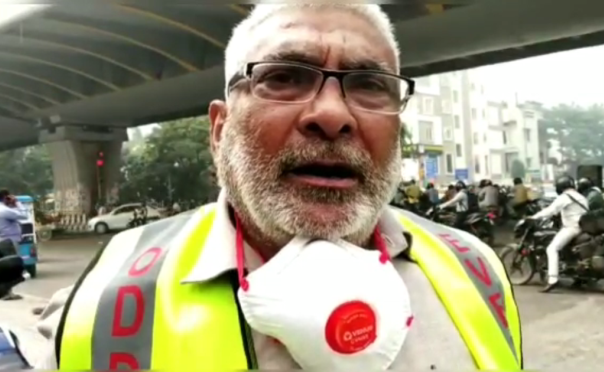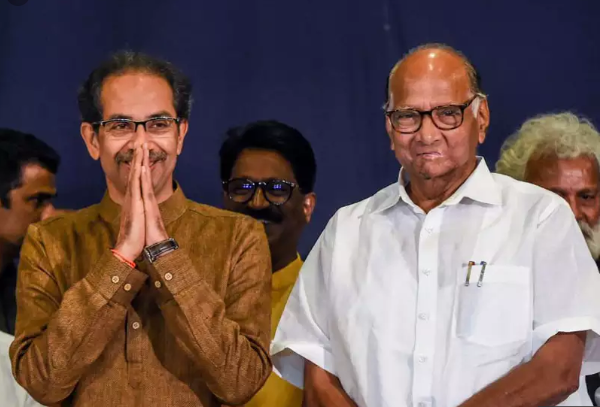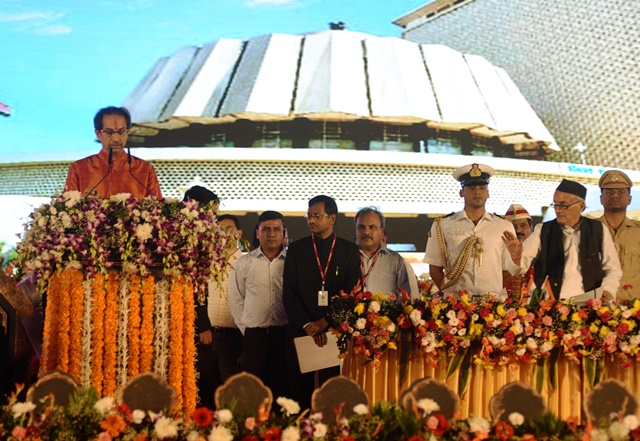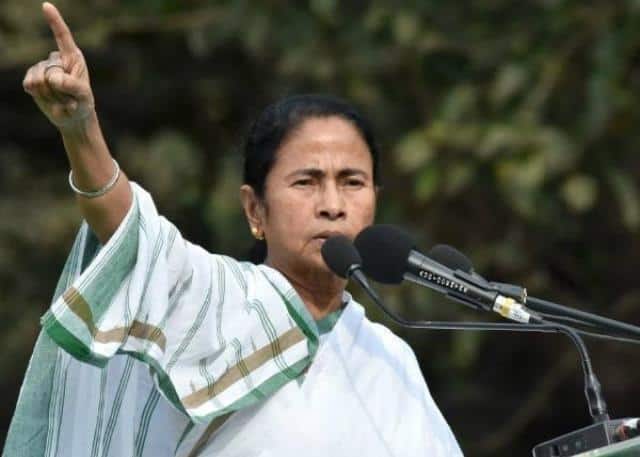Associated with Realpolitik that sets pragmatism
over ideological goals, the phrase “politics is the art of the
possible” entails that “it’s not about what’s right, or what’s best. It’s
about the attainable.”
Nineteenth-century German politician Otto
Von Bismarck who coined it couldn’t have foreseen events in present-day India,
or in Maharashtra. He would have been flummoxed by the way even Realpolitik is
played.
It is difficult to say who won in
Maharashtra that saw a government ushered in by subterfuge that had to quit within
three days. Besides greed for power that comes natural to all contenders, this
happened because of abdication by institutions established under the Constitution.
To begin with, the President signed a
proclamation revoking the governor’s rule at an unearthly 5.43 AM. The Union
Cabinet did not meet to recommend it. (This was justified by the Law Minister,
of all days, on the Constitution Day).
Next, the state governor, obviously on New
Delhi’s diktats, hastily swore in by 8 AM Devendra Fadnavis and as his new deputy,
Ajit Pawar. He did not verify the claim of majority support from among the
newly-elected legislators. Even after the dust settles, his conduct shall be debated.
The Supreme Court heard the matter on a
Sunday morning, an official holiday. But three honourable judges reserved their
ruling when they could have issued clear directions for floor test in the
legislature citing well-established precedents. That allowed contenders and
their cronies — carpetbaggers all – to abuse all democratic norms in activities
from swank hotels and resorts to the streets.
The apex court finally controlled the
damage with clear-cut rulings, but after 48 hours. It not only gave the Fadnavis
government just one day to get the assembly’s confidence vote but also
stipulated that the proceedings should be telecast ‘live’, conducted by a
pro-tem Speaker and held by an open ballot.
Without dwelling on the background details
that are too many, problems for the BJP ruling at the Centre, always resorting
to the jugular to extend sway across the country, began with falling short of
majority in both states that went to the polls last month.
It roped in a rival party in Haryana
co-opting its chief as the deputy chief minister. But in Maharashtra it reneged
on a fifty-fifty pre-poll pact with its oldest ally Shiv Sena (at least Sena
insists so).
Despite winning half of the seats than the
BJP, Sena, fearing future marginalization from a marauding BJP in the only
state it has political base, insisted on the chief minister’s post.
After a month’s stand-off, it broke with
the BJP and aligned with old rivals, Nationalist Congress Party (NCP) and the
Congress. The latter prevaricated, unwilling to align with an untrustworthy ideological
adversary when NCP chief Sharad Pawar emerged as the catalyst. To his credit,
he insisted, and secured, Sena’s formal parting from the BJP-led ruling
alliance.
The BJP prime movers, Narendra Modi and
Amit Shah grabbed the weakest link in the Opposition chain – Ajit Pawar, NCP
chief’s controversial nephew. He succumbed, to escape probe for graft charges
worth billions instituted by the Fadnavis Government-1.
Having got him, the short-lived Fadnavis-2
withdrew nine of the 20 charges. But the next day, Ajit quit, under severe family
pressures. Stripped of perceived majority minus Ajit, in no position to face
the floor-test, Fadnavis resigned, with egg on his and the BJP’s face.
Now, some noteworthy points on the way
polity functions. Split verdicts in an election have been creating conditions
when political mores and constitutional norms are wrecked. Money flows — the
going price of a Maharashtra legislator this time was, reportedly, a staggering
Rupees 50 crores.
The “Aya Ram, Gaya Ram” political culture
of trading in legislators that goes back to the 1960s has burgeoned. People have
got used to seeing those they vote changing party labels and loyalty for power
and pelf. Come to think of it, all four parties were brazen and shameless, but
BJP behaved with maximum impunity.
No popular movement has been unleashed to
protest this trend. India’s middle class scoffs at corruption in general, but
is selective on political corruption. The venerable Anna Hazare, the anti-graft
movement hero six years ago, hailing from the same Maharashtra, is today silent
and ignored.
Maharashtra’s changed political line-up has
blurred the secular-communal divide. An aggressive “Hindu nationalist” Shiv
Sena is being embraced by the NCP, the Congress, the Samajwadi and others. Keen
to beat back a marauding BJP, the secularists (this term is getting blurred)
have embraced Sena despite its record of regional chauvinism and its avowed
“Hindu nationalism” that is more aggressive and regressive than the BJP.
The BJP-Sena split has raised new worries in
influential quarters. The caste factor has always kept a pluralist Hindu
society divided. Lord Meghnad Desai, the British peer and an avid Modi fan,
laments: “If two Hindu nationalist parties cannot agree on a power-sharing
coalition because of the Brahmin/non-Brahmin difference, what hope is there for
a Hindu Rashtra?”
The Maharashtra events are a resounding
slap on the faces of Modi and Shah. Their template of being the modern-day
Chanakyas has taken a hit. Their ‘nationalism’ platform aggressively selling
their Kashmir initiative and labeling its critics ‘traitors’ did not bring enough
seats. Local issues and regional parties mattered. Besides unemployment, farm
distress is a serious issue in Maharashtra.
The Pawars are a dynasty, the reason why
Ajit the rebel, turned prodigal. Now Pawar sups with another dynasty, the
Thackerays and the oldest dynasty of them all, the Congress’ Gandhis.
This is Pawar’s moment, thanks to the
BJP’s Maharashtra folly. India’s increasingly one-sided political discourse has
been seriously breached with Pawar’s emergence. Although ageing and ailing, he
has a stature around whom a leader-less Opposition, particularly the Congress,
can build its future campaign against the BJP. That is, provided they sink
their egos — a big ‘if’ in Indian context.
Road for this has been paved in Maharashtra,
the second-largest state that elects 48 Lok Sabha members, next only to Uttar
Pradesh. Equally important is the fact that the state, despite numerous flaws,
remains India’s richest and its capital is also India’s principal financial/ commercial
hub. Losing Maharashtra is the biggest blow the BJP has suffered since 2014.
Maharashtra has a chief minister in Uddhav
Thackeray, 59, who has had zero experience in governance. He has remained under
the shadow of his father, late Balasaheb, who founded and built a party with a
chauvinistic agenda and resorts to strong-arm tactics. India Inc. couldn’t be happy
by this development fearing political instability and the resultant damage to
an already slowdown-hit economy.
The new combine will have to battle and rein in their several inner contradictions and with Pawar playing the ‘Pitamaha’, ensure that they do not overwhelm governance.
The writer can be reached at mahendraved07@gmail.com
